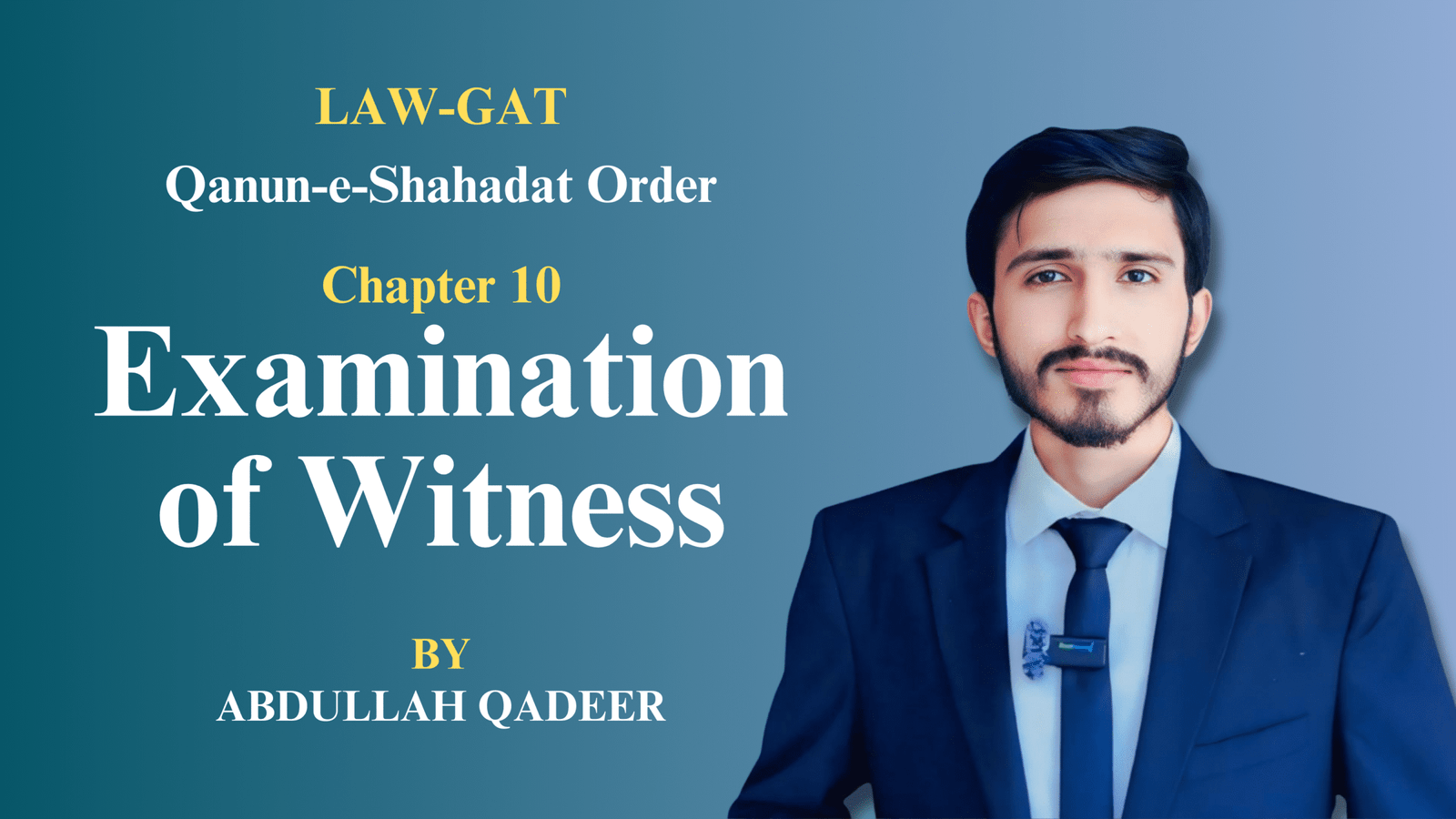The Qanun-e-Shahadat Order, 1984 gives foundational importance to oral evidence, which is often the primary means through which facts are established in court. This chapter defines oral evidence and lays down the rules governing its admissibility, reliability, and the conditions under which it must be direct.
It also distinguishes between competent and incompetent witnesses, emphasizing that oral testimony must originate from a person who directly perceived the fact. The chapter upholds the principle that verbal testimony must meet certain standards to influence judicial outcomes.
Multiple Choice Questions (MCQs)
Which law regulates the order of production and examination of witnesses?
- A) Civil and criminal procedure law
- B) Discretion of the Court
- C) Both A and B
- D) Evidence Act
Answer: C) Both A and B
Who decides the admissibility of evidence?
- A) The parties involved
- B) The Court clerk
- C) The Judge
- D) The witness
Answer: C) The Judge
What must be proved before a statement by a deceased person can be admitted as evidence under Article 46?
- A) The person’s birth certificate
- B) The person’s death
- C) The person’s will
- D) The person’s last known address
Answer: B) The person’s death
What is the term used for the examination of a witness by the party who calls him?
- A) Cross-examination
- B) Re-examination
- C) Examination-in-chief
- D) Preliminary examination
Answer: C) Examination-in-chief
When can leading questions be asked without the permission of the Court?
- A) During examination-in-chief
- B) During re-examination
- C) During cross-examination
- D) During character witness examination
Answer: C) During cross-examination
What is the primary focus of re-examination?
- A) To introduce new matters
- B) To explain matters referred to in cross-examination
- C) To challenge the witness’s credibility
- D) To summarize the witness’s testimony
Answer: B) To explain matters referred to in cross-examination
Under what condition can a person summoned to produce a document be cross-examined?
- A) Immediately upon producing the document
- B) If the person is called as a witness
- C) If the document is admitted as evidence
- D) If the document is authenticated
Answer: B) If the person is called as a witness
What must the Court consider when deciding whether to compel a witness to answer a question that affects their credibility?
- A) The importance of the imputation to the witness’s character
- B) The relevance of the question to the suit or proceeding
- C) The truth of the imputation
- D) All of the above
Answer: D) All of the above
What can the Court do if a question intended to insult or annoy is asked during examination?
- A) Allow the question
- B) Forbid the question
- C) Fine the advocate
- D) Report the advocate to the High Court
Answer: B) Forbid the question
When can evidence of a witness’s previous conviction be given?
- A) If the witness admits the previous conviction
- B) If the witness denies the previous conviction
- C) If the previous conviction is relevant to the case
- D) If the witness is a character witness
Answer: B) If the witness denies the previous conviction
What can be done if a witness refuses to answer a question that relates to their credibility?
- A) The Court may compel them to answer
- B) The Court may draw an unfavorable inference
- C) The witness may be dismissed
- D) The witness’s testimony may be struck out
Answer: B) The Court may draw an unfavorable inference
Who may be asked leading questions without objection during examination-in-chief or re-examination?
- A) Any witness
- B) Witnesses to character
- C) Witnesses under the age of 18
- D) No one
Answer: D) No one
Under what conditions can a witness’s credit be impeached by showing their previous statements?
- A) The previous statements must be related to the same case
- B) The previous statements must be inconsistent with their testimony
- C) The previous statements must be from a different witness
- D) The previous statements must be written
Answer: B) The previous statements must be inconsistent with their testimony
When is evidence of former statements of a witness admissible to corroborate their later testimony?
- A) When the former statements are contradictory
- B) When the former statements are consistent with their testimony
- C) When the witness is hostile
- D) When the witness is a character witness
Answer: B) When the former statements are consistent with their testimony
What type of questions are considered improper during cross-examination?
- A) Questions related to the witness’s character
- B) Questions that do not affect the credibility of the witness
- C) Questions about the witness’s background
- D) Questions that challenge the witness’s testimony
Answer: B) Questions that do not affect the credibility of the witness

